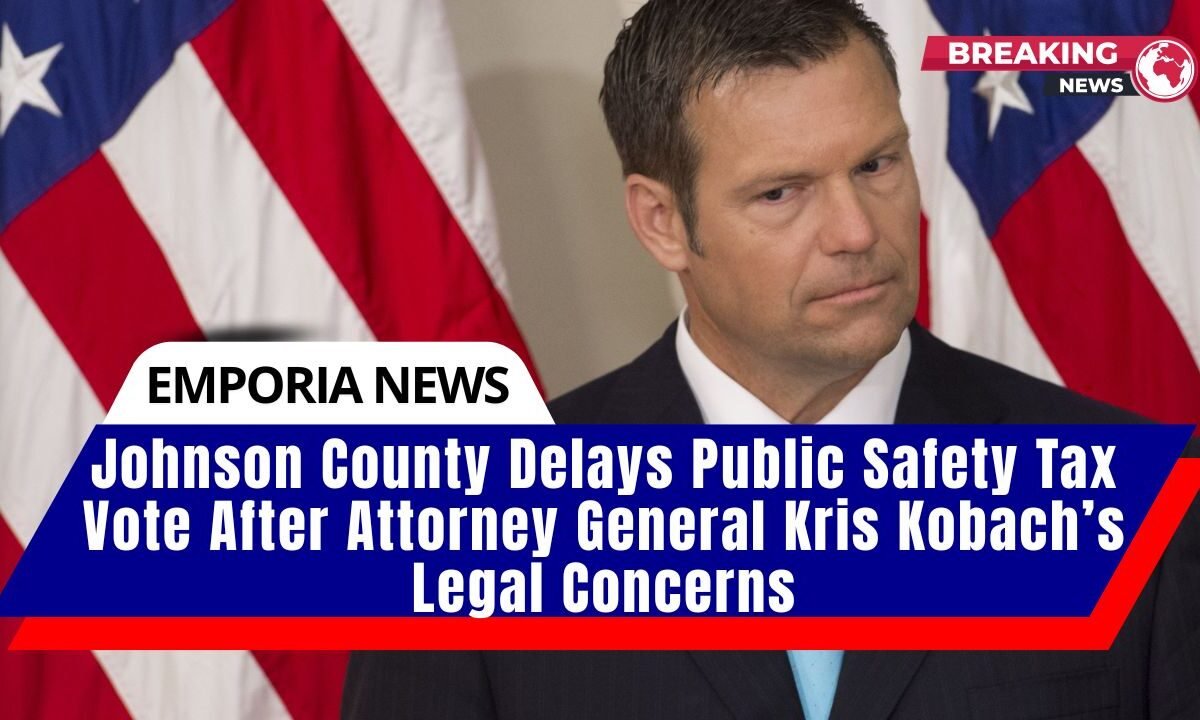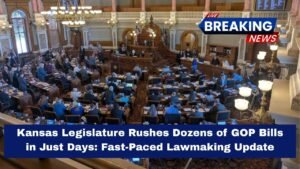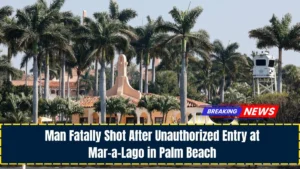Johnson County has postponed its public safety sales tax vote from November 2025 to March 2026, following a legal opinion by Kansas Attorney General Kris Kobach.
The move comes as the county seeks clarity on the legality of its proposed ballot language, especially in light of Kobach’s interpretation of how the sales tax revenue can be used.
Board Chair Mike Kelly emphasized the importance of maintaining funding for public safety, especially with the county’s growing and aging population. He also reaffirmed the county’s commitment to ensuring any public measure is both necessary and legally sound.
Kobach’s Interpretation Sparks Controversy
In a formal opinion, Attorney General Kris Kobach argued that the Johnson County Commission exceeded its legal authority when it approved a sales tax renewal measure. Kobach claims that Kansas law does not allow such taxes to fund services like mental health programs or emergency medical services.
“According to the attorney general, services like 911 responses and ambulance care don’t qualify as public safety,” said Kelly during the commission meeting.
Although Kobach’s opinion is not legally binding, it raises concerns about possible legal challenges if the vote were held under the original language. The opinion was issued in response to a request from Sen. Mike Thompson, a Republican from Shawnee.
Revised Plan for March 2026 Ballot
Kelly clarified that the current public safety tax doesn’t expire until March 2027, giving the county time to seek a judicial declaration and modify the ballot language accordingly. The board has now directed its legal team to prepare a declaratory judgment, and a revised resolution is expected to be voted on next Thursday.
“We planned ahead to ensure we had the flexibility to revisit this if needed,” said Kelly.
The updated proposal will likely include the same objectives but will move the vote to a March 2026 special election instead of the general election in November 2025.
A Battle Over Local Authority
Chair Kelly called Kobach’s actions “an attack on responsive and responsible local government,” expressing concern that the state is slowly eroding local control over essential services.
“This is part of a larger pattern of the state removing funding options from local governments,” Kelly added, citing examples like mortgage license fees and equipment taxes.
As property taxes rise, counties like Johnson are struggling to fund services mandated by the state, including public safety and social support programs.
Purpose of the Public Safety Sales Tax
The current quarter-cent sales tax has funded significant infrastructure, including the county courthouse and medical examiner’s facility. Cities within the county have used their share for police vehicles, mental health programs, and other local needs.
According to county data:
- 46% of the revenue supports county-level projects
- 36% goes to city-level public safety initiatives
The proposed extension would expand support to include mental health response teams, EMS services, and crisis intervention programs, reflecting the changing needs of a growing population.
Dispute Over Definition of ‘Public Safety’
Kobach contends that the Kansas statute allows the tax to fund only law enforcement facilities and directly related programs. However, Kelly argues that the definition of public safety must be broader.
“Public safety means more than law enforcement—it includes EMS, mental health responders, and ensuring the community’s needs are met with comprehensive services,” said Kelly.
As Johnson County prepares to revise its public safety sales tax measure, the clash highlights the ongoing tension between state oversight and local control.
While Attorney General Kobach’s opinion may not have legal weight on its own, it has prompted county officials to re-evaluate and protect their proposed initiatives from future court challenges.
The updated vote in March 2026 will allow residents to weigh in on how their community funds critical services for the future.




